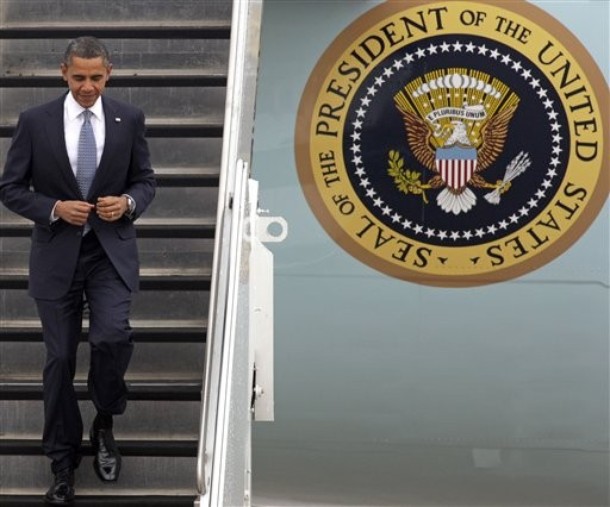The U.S. should pare back military forces from Europe.

Ian Brzezinski thinks President Obama should reject calls to draw down military forces from Europe:
Heeding those calls would be a mistake. Moving military forces based overseas to facilities at home involves high near term costs, including building of new infrastructure. The long term savings are marginal at best. Second, once basing privileges in another country have been terminated, it is never easy to regain them.Most importantly, the United States would deny itself a critical force multiplier. U.S. troops based in Europe provide the most effective way to develop and sustain allied forces that are truly interoperable and ready to fight side by side with us. This is a critical and challenging necessity. U.S. military units that visit Europe once or twice year can in no way match the levels of joint training and exercises currently available to those stationed in Europe.
Accordingly, at Lisbon, Obama should announce a decision to keep U.S. forces stationed in Europe at their current levels. That would be a strategically serious and politically needed demonstration of U.S. commitment to the transatlantic alliance.
So what, then, would be a European demonstration of their commitment to the transatlantic alliance? Maybe not slashing their defense budgets so steeply? Maybe footing some of the bill - estimated to be in the billions - for retaining U.S. forces in Europe? Or does it not matter at all whether Europe holds up their end of the bargain?
I think we also need to differentiate between pulling up stakes completely in Europe - a root and branch removal of every last military base and soldier - and bringing current force levels down from the 80,000 there now to something lower than what is presently stationed in Korea (roughly 28,500 to defend a significantly more volatile strategic position). Is it not possible for the U.S. to maintain a greatly reduced military footprint in Europe while staying true to its Article 5 committments under NATO? Obviously it is - the nuclear umbrella alone ensures that. The U.S. could sustain a "tripwire" commitment of conventional forces that would be a down payment on a larger influx should the security situation on the continent deteriorate (an unlikely but not completely implausible scenario).
Europe is not under threat from any nation state that its own armed forces could not dispatch. What's more, it's not clear why Brzezinski is so dismissive about the costs of these garrisons. The U.S. Army was already in the process of consolidating its European bases and drawing down brigades - a process that the Obama administration has halted, at a cost of billions of dollars to the taxpayer.
What's more, if the U.S. reduces the overall size of the Army, rather than just relocating it out of Europe, there would be further costs savings as well.
Again, there are policy options between disbanding NATO and pulling out of Europe and sustaining (or doubling down on) the costly Cold War-era status quo. Europe is a secure and prosperous continent that is signaling quite clearly with their own defense budgets how they view their strategic environment. At a time when the U.S. is going to face some form of fiscal retrenchment and the potential for increased security demands from Asia, Europe seems like a logical place to pare back.
(AP Photo)



